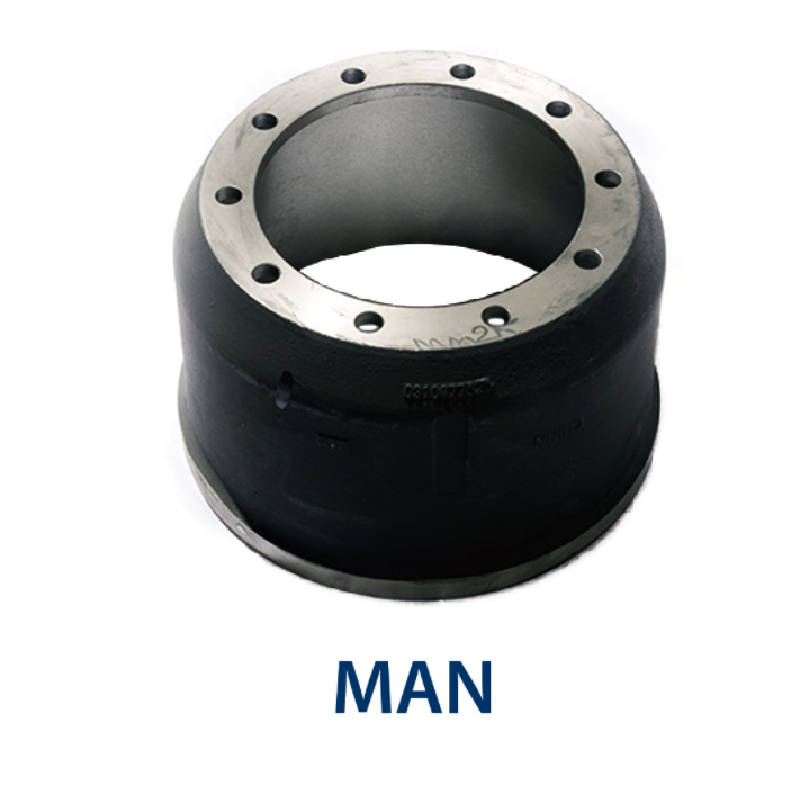Dec . 19, 2024 16:45 Back to list
what happens when your brake drums get very hot
What Happens When Your Brake Drums Get Very Hot?
Brake drums are a critical component of a vehicle's braking system, primarily found in drum brake systems. Understanding what happens when these brake drums get excessively hot is essential for maintaining vehicle safety and ensuring effective braking performance.
When you engage your brakes, the friction between the brake shoes and the inner surface of the brake drum helps to slow down or stop your vehicle. This process generates heat, which is a normal occurrence. However, under certain conditions, brake drums can become excessively hot, leading to several potential issues.
One of the most significant dangers of overheating brake drums is brake fade. This phenomenon occurs when the brake components reach temperatures beyond their designed operational limits. When brake drums become too hot, the friction material on the brake shoes can lose its effectiveness, reducing the stopping power. As a driver, you may notice that your brake pedal feels softer than usual and requires more effort to achieve the desired stopping force. This can become particularly dangerous during extended braking situations, such as descending a steep hill or during heavy traffic when frequent stops are necessary.
Moreover, excessive heat can lead to thermal expansion of the brake drums. When the metal expands, it can cause the drums to warp. A warped brake drum results in uneven contact between the brake shoes and the drum surface, leading to vibrations and noise during braking. This not only affects driving comfort but can also cause further wear on the braking system.
what happens when your brake drums get very hot

Another consequence of hot brake drums is the potential for brake parts to fail. When temperatures soar, lubricants used in brake components can break down, leading to reduced performance and potential failure. Components such as wheel cylinders and brake hoses are particularly susceptible to damage from excessive heat. If these parts fail, it can result in brake fluid leaks or system malfunction, significantly impairing your vehicle's braking capability.
Additionally, prolonged exposure to high temperatures can also cause damage to the brake drums themselves. The intense heat can create cracks in the drum material, compromising its structural integrity. If a brake drum breaks while you are driving, it can lead to a complete loss of braking ability on that wheel, posing a severe risk to you and others on the road.
To prevent brake drum overheating, it is vital to practice good driving habits. Avoid “riding” the brakes, especially on long descents. Utilize engine braking when possible, by shifting to a lower gear, to reduce the reliance on the brake system. Regular maintenance checks are also crucial. Inspect your brake components periodically and replace any worn-out parts to ensure they function correctly.
In summary, while some heat is normal during braking, excessive heat in brake drums can lead to dangerous consequences, including brake fade, warping, premature wear, and catastrophic failure. Awareness of how to manage braking and the importance of regular maintenance can help ensure your braking system remains effective and safe, ultimately protecting you, your passengers, and others on the road. Always be vigilant and proactive about your vehicle’s braking system to avoid the dangers associated with hot brake drums.
-
HINO Industrial Efficiency-Jiangsu Hino Industrial|Productivity Optimization&Cost Reduction
NewsJul.12,2025
-
HINO-¡Ң���ຽ��е��������˾|Advanced Industrial Solutions&Energy Efficiency
NewsJul.12,2025
-
Premium Brake Drum Iveco – Durable Drum Brake Drum & Brake Shoe Solutions
NewsJul.08,2025
-
High-Performance Brake Drum Liza for Enhanced Safety Reliable Drum Brake Drum & Brake Shoe Solutions
NewsJul.08,2025
-
High-Quality Brake Drum MAZ – Durable Drum Brake Drum & Brake Drum and Brake Shoe for Optimal Performance
NewsJul.07,2025
-
High-Quality Brake Drum Kamaz for Reliable Performance Durable Drum Brake Drum & Brake Shoes
NewsJul.07,2025
